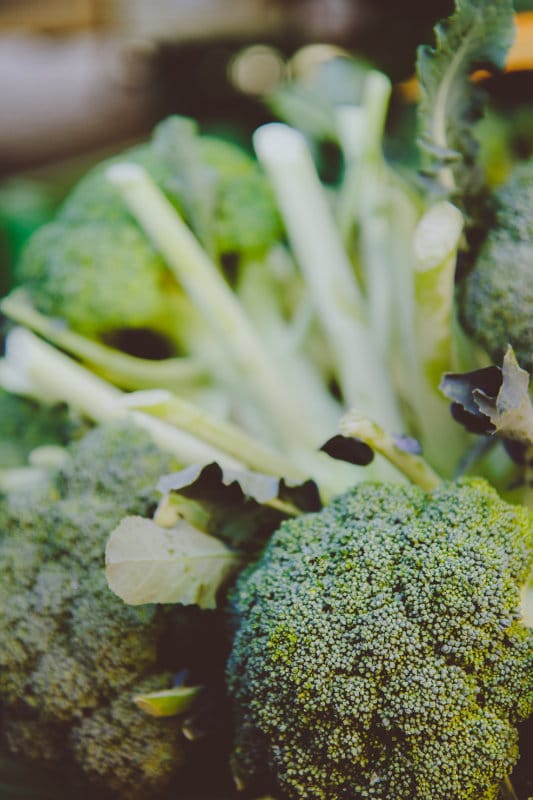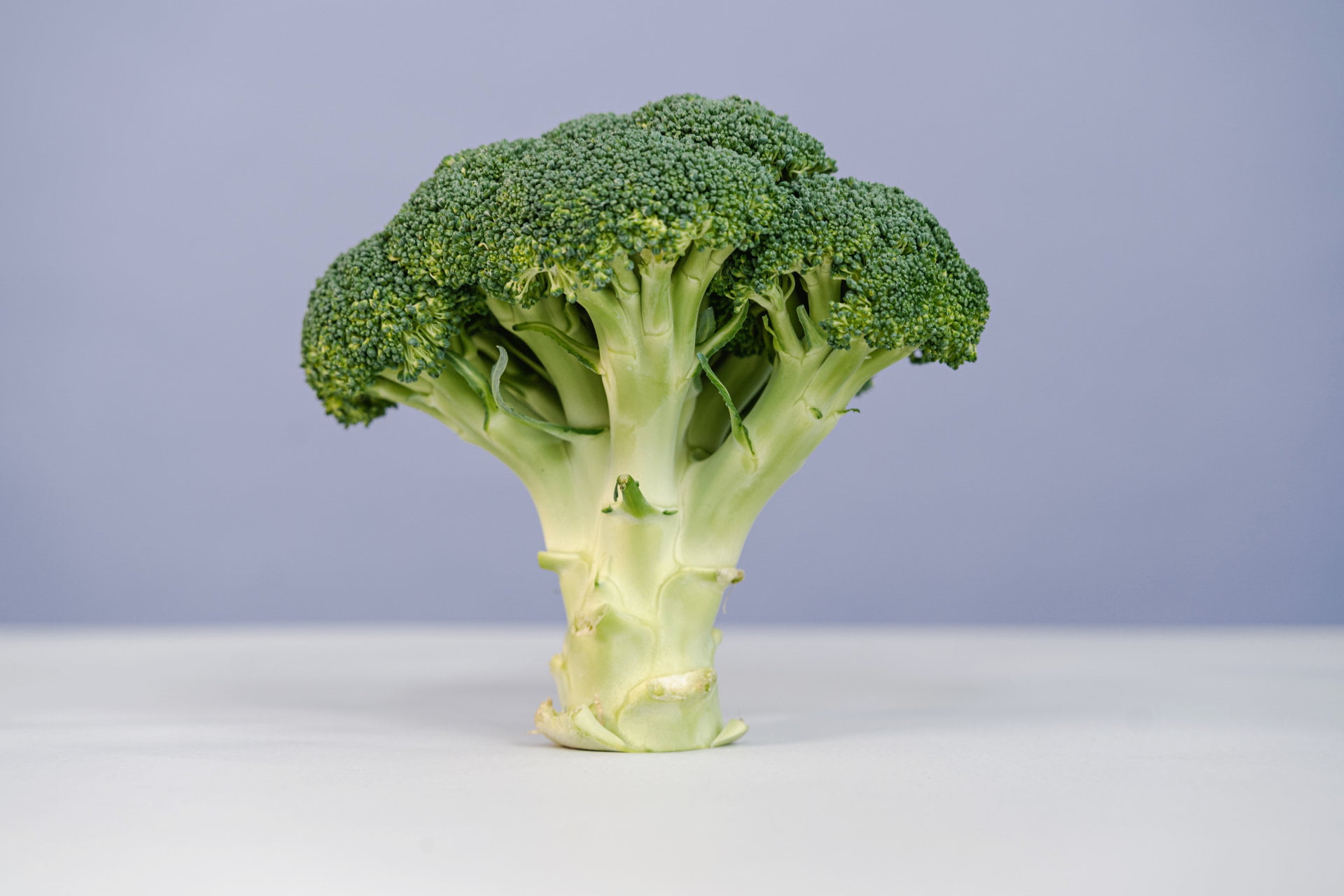It is a cruciferous vegetable packed with vitamins, minerals, and antioxidants to help prevent chronic diseases.
Despite its reputation as a healthy food, many people still do not include broccoli in their diet.
This article will explore why broccoli should be a staple in your diet and how it can benefit your health.
Broccoli is Nutrient-Dense
It is a nutrient-dense food that is low in calories but high in essential vitamins and minerals.
It is also a good source of fibre, folate, and potassium. Additionally, this contains antioxidants such as lutein, zeaxanthin, and beta-carotene that can help protect your cells from damage.
Can Improve Heart Health
Broccoli is rich in fibre, which can help lower cholesterol levels and reduce the risk of heart disease.
A study published in Science Daily found that consuming cruciferous vegetables like broccoli was associated with a lower risk of heart disease. [1]
Additionally, it contains sulforaphane, a compound that improves blood pressure and reduces inflammation.
Can Help Prevent Cancer
Several studies have shown that eating broccoli can help reduce the risk of certain types of cancer. [2] [3] [4]
According to studies consuming cruciferous vegetables like broccoli can lower the risk of developing cancer.
This is because broccoli contains compounds called glucosinolates [5][6], broken down into other compounds with anti-cancer properties.

Can Boost Immunity
Broccoli is an excellent vitamin C source, essential for a healthy immune system. Vitamin C helps stimulate the production of white blood cells, which fight off infections and diseases. [7]
Can Improve Digestion
Broccoli is high in fibre, which can help promote regular bowel movements and prevent constipation.
It also contains a compound called sulforaphane, which has been shown to improve gut health by reducing inflammation and promoting the growth of healthy gut bacteria. [8]
Can Improve Brain Health
Broccoli contains choline, a nutrient that is essential for brain health.
Choline helps regulate mood and memory and has been shown to reduce the risk of cognitive decline. [9]
Additionally, broccoli contains vitamin K, which is linked to improved cognitive function. [10]
Nutritional Value of Brocolli [11]
Per 100 g
Name Amount Unit
Water 89.3 g
Energy 34 kcal
Energy 141 kJ
Protein 2.82 g
Total lipid (fat) 0.37 g
Ash 0.87 g
“Carbohydrate, by difference” 6.64 g
“Fiber, total dietary” 2.6 g
“Sugars, total including NLEA” 1.7 g
Sucrose 0.1 g
Glucose 0.49 g
Fructose 0.68 g
Lactose 0.21 g
Maltose 0.21 g
Galactose 0 g
Starch 0 g
“Calcium, Ca” 47 mg
“Iron, Fe” 0.73 mg
“Magnesium, Mg” 21 mg
“Phosphorus, P” 66 mg
“Potassium, K” 316 mg
“Sodium, Na” 33 mg
“Zinc, Zn” 0.41 mg
“Copper, Cu” 0.049 mg
“Manganese, Mn” 0.21 mg
“Selenium, Se” 2.5 µg
“Vitamin C, total ascorbic acid” 89.2 mg
Thiamin 0.071 mg
Riboflavin 0.117 mg
Niacin 0.639 mg
Pantothenic acid 0.573 mg
Vitamin B-6 0.175 mg
“Folate, total” 63 µg
Folic acid 0 µg
“Folate, food” 63 µg
“Folate, DFE” 63 µg
“Choline, total” 18.7 mg
Betaine 0.1 mg
Vitamin B-12 0 µg
“Vitamin B-12, added” 0 µg
“Vitamin A, RAE” 31 µg
Retinol 0 µg
“Carotene, beta” 361 µg
“Carotene, alpha” 25 µg
“Cryptoxanthin, beta” 1 µg
“Vitamin A, IU” 623 IU
Lycopene 0 µg
Lutein + zeaxanthin 1400 µg
Vitamin E (alpha-tocopherol) 0.78 mg
“Vitamin E added” 0 mg
“Tocopherol, beta” 0.01 mg
“Tocopherol, gamma” 0.17 mg
“Tocopherol, delta” 0 mg
“Tocotrienol, alpha” 0.04 mg
“Tocotrienol, beta” 0 mg
“Tocotrienol, gamma” 0 mg
“Tocotrienol, delta” 0 mg
“Vitamin D (D2 + D3), International Units” 0 IU
Vitamin D (D2 + D3) 0 µg
Vitamin K (phylloquinone) 102 µg
Vitamin K (Dihydrophylloquinone) 0 µg
“Fatty acids, total saturated” 0.114 g
SFA 4:0 0 g
SFA 6:0 0 g
SFA 8:0 0 g
SFA 10:0 0 g
SFA 12:0 0 g
SFA 14:0 0.002 g
SFA 15:0 0 g
SFA 16:0 0.084 g
SFA 17:0 0 g
SFA 18:0 0.018 g
SFA 20:0 0.006 g
SFA 22:0 0.004 g
“Fatty acids, total monounsaturated” 0.031 g
MUFA 14:1 0 g
MUFA 15:1 0 g
MUFA 16:1 0 g
MUFA 17:1 0.002 g
MUFA 18:1 0.029 g
MUFA 20:1 0 g
MUFA 22:1 0 g
“Fatty acids, total polyunsaturated” 0.112 g
PUFA 18:2 0.049 g
PUFA 18:3 0.063 g
“PUFA 18:3 n-6 c,c,c” 0 g
PUFA 18:4 0 g
“PUFA 20:2 n-6 c,c” 0 g
PUFA 20:3 0 g
PUFA 20:4 0 g
PUFA 20:5 n-3 (EPA) 0 g
PUFA 22:5 n-3 (DPA) 0 g
PUFA 22:6 n-3 (DHA) 0 g
“Fatty acids, total trans” 0 g
Cholesterol 0 mg
Tryptophan 0.033 g
Threonine 0.088 g
Isoleucine 0.079 g
Leucine 0.129 g
Lysine 0.135 g
Methionine 0.038 g
Cystine 0.028 g
Phenylalanine 0.117 g
Tyrosine 0.05 g
Valine 0.125 g
Arginine 0.191 g
Histidine 0.059 g
Alanine 0.104 g
Aspartic acid 0.325 g
Glutamic acid 0.542 g
Glycine 0.089 g
Proline 0.11 g
Serine 0.121 g
“Alcohol, ethyl” 0 g
Caffeine 0 mg
Theobromine 0 mg
Cooking Broccoli
Broccoli is a versatile vegetable that can be cooked in various ways.
To prepare, wash it thoroughly and cut it into bite-sized pieces.
It can be steamed, boiled, roasted, or sautéed.
Steaming is a popular cooking method for broccoli as it helps retain its nutrients. To steam broccoli, place it in a steamer basket over a pot of boiling water and cook for 5-7 minutes until tender.
Boiling is another option, but it can cause the broccoli to become waterlogged and lose some nutrients.
Roasting broccoli with olive oil and garlic is a delicious way to bring out its natural sweetness while sautéing it with other vegetables can create a flavorful side dish.
Broccoli can also be added to soups, stews, and casseroles to boost their nutritional value.

Conclusion
Broccoli is an incredibly nutritious and versatile vegetable that should be a staple in everyone’s diet.
It is low in calories but high in essential vitamins, minerals, and antioxidants that can help prevent chronic diseases.
This vegetable can improve heart health, immunity, digestion, and brain health. It is also easy to cook and can be prepared in various ways, making it a convenient addition to any meal.
Whether you prefer it steamed, roasted, or sautéed, it is a delicious and nutritious vegetable that can help you maintain a healthy and balanced diet.
So, next time you’re at the grocery store, add it to your shopping list and reap the many benefits of this superfood.
References
[1] ScienceDaily. (n.d.). Broccoli Could Reverse The Heart Damaging Effects Of Diabetes. [online] Available at: https://www.sciencedaily.com/releases/2008/08/080825210332.htm.
[2] Zhang, Y., Talalay, P., Cho, C. G., & Posner, G. H. (1992). A major inducer of anticarcinogenic protective enzymes from broccoli: isolation and elucidation of structure. Proceedings of the National Academy of Sciences of the United States of America, 89(6), 2399–2403. https://doi.org/10.1073/pnas.89.6.2399
[3] Fahey, J. W., Zhang, Y., & Talalay, P. (1997). Broccoli sprouts: an exceptionally rich source of inducers of enzymes that protect against chemical carcinogens. Proceedings of the National Academy of Sciences of the United States of America, 94(19), 10367–10372. https://doi.org/10.1073/pnas.94.19.10367
[4] Zhang, Y., & Tang, L. (2007). Discovery and development of sulforaphane as a cancer chemopreventive phytochemical. Acta pharmacologica Sinica, 28(9), 1343–1354. https://doi.org/10.1111/j.1745-7254.2007.00679.x
[5] Dinkova-Kostova, A. T., & Kostov, R. V. (2012). Glucosinolates and isothiocyanates in health and disease. Trends in molecular medicine, 18(6), 337–347. https://doi.org/10.1016/j.molmed.2012.04.003
[6] Prieto MA, López CJ, Simal-Gandara J. Glucosinolates: Molecular structure, breakdown, genetic, bioavailability, properties and healthy and adverse effects. Adv Food Nutr Res. 2019;90:305-350. doi: 10.1016/bs.afnr.2019.02.008. Epub 2019 Mar 25. PMID: 31445598.
[7] National Institutes of Health. (2021, March 26). Office of Dietary Supplements – Vitamin C. Nih.gov. https://ods.od.nih.gov/factsheets/VitaminC-HealthProfessional/
[8] He, C., Huang, L., Lei, P., Liu, X., Li, B., & Shan, Y. (2018). Sulforaphane Normalizes Intestinal Flora and Enhances Gut Barrier in Mice with BBN-Induced Bladder Cancer. Molecular nutrition & food research, 62(24), e1800427. https://doi.org/10.1002/mnfr.201800427
[9] National Institutes of Health (2017). Office of Dietary Supplements – Choline. [online] Nih.gov. Available at: https://ods.od.nih.gov/factsheets/Choline-HealthProfessional/.
[10] National Institutes of Health (2017). Office of Dietary Supplements – Vitamin K. [online] Nih.gov. Available at: https://ods.od.nih.gov/factsheets/vitaminK-HealthProfessional/.
[11] FoodData Central. (2020). Usda.gov. https://fdc.nal.usda.gov/fdc-app.html#/food-details/170379/nutrients
Images Used
Photo by MART PRODUCTION: https://www.pexels.com/photo/close-up-of-a-green-broccoli-7890206/
Photo by Rubyand Lion: https://www.pexels.com/photo/selective-focus-photography-of-broccoli-1118177/
Photo by cottonbro studio: https://www.pexels.com/photo/sliced-tomato-on-white-ceramic-plate-4252133/





0 Comments